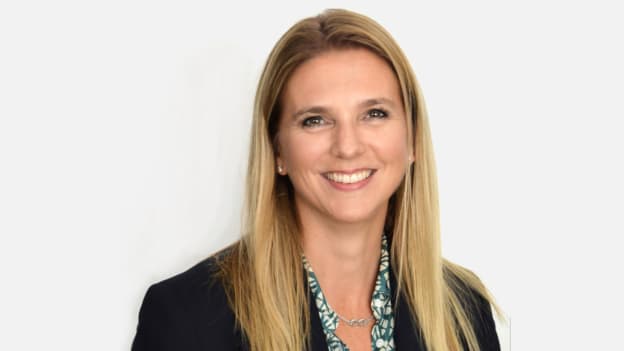What do our leaders need to learn next? INSEAD's Nathalie Nawrocki gives some suggestions

In the wake of the pandemic, the definition of successful leadership has shifted heavily in favour of soft skills such as emotional intelligence, resilience, and adaptability. But have our leadership development strategies caught up with these needs?
People Matters met up with Nathalie Nawrocki, global head of corporate partnerships at INSEAD, during the INSEAD Alumni Forum Asia 2024 earlier this month, and we took the opportunity to ask her about the direction that leadership development is taking and what the next step might be. Based out of France, Nathalie also heads INSEAD's executive coaching practice.
Here's what she told us about the state of leadership development today.
Key takeaways:
- Soft skills are in demand, but hard skills are still fundamental
- Leaders need curiosity, empathy, the ability to connect the dots, and learning muscle
- A growth mindset is the most important trait a leader can have
Leadership often evolves more quickly than leaders can keep up with the needs of the day. How can we future-proof the leaders – and aspiring leaders – of today to tackle tomorrow's challenges?
In the past, there were very clear frameworks around what a leader ought to be like, and all leaders were expected to be more or less the same. We don't have that any more. Instead, we've entered a phase where successful leadership is more about being very authentic. And that can mean a lot of different leadership styles.
But the number one quality needed across all these approaches is a growth mindset, or the readiness to learn. Our leaders need to be ready to evolve with the context and be ahead of the game. Now this is partly an innate quality, and it's partly something that can be developed through various means such as coaching.
On the topic of authenticity, the pandemic caused soft skills to be emphasised at the executive leadership level. Do you feel this change has carried over from the present day?
It definitely hasn't gone away. Using coaching as an indicator, we've seen a huge uptick in executive coaching at a very senior level. Pre-pandemic this was considered as remedial coaching, but now it's essential to help leaders develop the skills to face today's challenges.
Leaders are extremely stretched, much more so than before, and their skills have to be much more broader than before. They have to manage a workforce that's going through challenges like how to collaborate in a remote working model, how to keep the culture intact when you're not sure when or how to get your people together.
Some of the soft skills we see a strong need for are emotional intelligence, the ability to handle ambiguity, the ability to balance business strategy and leadership through change, resilience, the ability to navigate the changing needs and expectations of a multi-generational workforce, and communication. Because for leaders to get their message out today, it needs to be particularly well delivered, and authentic.
What about the hard skills? Are they still in demand – and how are those changing with technology?
The harder skills – the business school topics – are more classic. They do evolve, but not quite as quickly, and there is still a strong demand for them. In fact, post-Covid, we are seeing more searches for basic skills like strategy and finance.
We also see newer skills in demand, such as ESG and sustainability, intercultural and international fundamentals, and now AI. Some of these, like generative AI, are emerging topics, and we at INSEAD are doing the research and teaching and learning right alongside our corporate clients.
And we also have organisations asking us on about how to navigate the complex geopolitical landscape, because these days everything is interlinked: it's not just about economics, but macroeconomics and looking back to geopolitics. Leaders must know what's going to happen, what the future will look like as things change worldwide. Of course, we don't have a crystal ball, but we can help them understand what can happen in these situations, so that they have a much better toolkit for making their decisions.
What do you think will be the next set of skills and capabilities to come into high demand?
The first area I see leaders wanting to upskill themselves and their organisations is curiosity. Being inherently curious helps you learn and absorb new things very fast, and also helps you to stay level-headed in times of disruption and crisis.
The second area is empathy as a leader. Gone are the days of directive leadership; now it's collaborative leadership and support for innovation.
The third thing is the ability to connect the dots, from global economics to supply chain to price pressures, competition, upcoming technological trends, black swan events, and then being able to juxtapose all these into the business strategy and refresh it constantly.
And the fourth thing is how to build learning muscle – how to be a lifelong learner, how to identify the skills needed to keep upgrading yourself? Organisations are increasingly asking us how to learn constantly, and while I wouldn't say learning today is that radically different from what we had a decade ago, we do see many more platforms than there used to be. We don't just have classrooms any more, we also have digital platforms with articles, podcasts, 10 minute conversations on specialised topics, and so on.
Plenty of executives are willing to learn. But what about the ones who need to learn but may lack the capacity to make such upskilling efforts? How do we help them to upgrade?
Using our executive education programmes as an example, leaders can be directed to upskill by HR or by their managers, or they may receive learning as part of a company specific programme we're conducting. How quickly they adopt new skills depends on their context, whether they've had the opportunity to develop in the past or not.
There is also internal pressure coming from the new generation entering the workforce. These younger people are pushing to pick up the newest skill set, and they are bringing different social norms into the workplace. That creates a big shift and some bottom-up pressure for older leaders, who have to change in order to attract new talent and engage employees.
Speaking as the head of INSEAD's executive coaching practice, I think coaching is one of the biggest keys we have to unlock these leaders' potential. But it's not something we can push. We can offer help and support, but that pressure must come from within.
Going back to our earlier mention of AI, what skills do you think leaders and executives need to pick up around AI, in the context of business?
Right now, there is a mix of hype and fear at the very senior level. Some rush into it because they feel their organisations will lose out. Others are paralysed because they're afraid. What they need is the knowledge to take the decisions. They don't need to know the technical aspects, they just need to know how to ask the right questions. And I think our role as an educational institution is to take away both the hype and the fear and give a realistic picture of what we know at this point.














